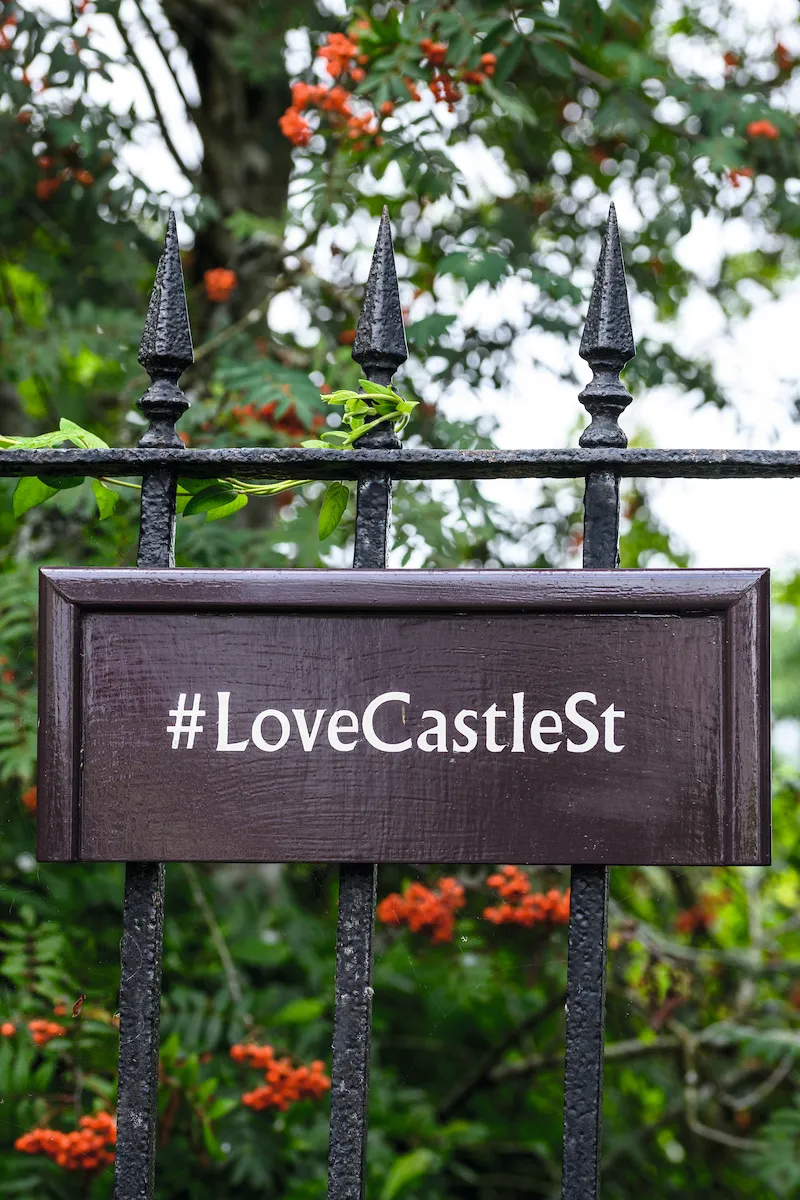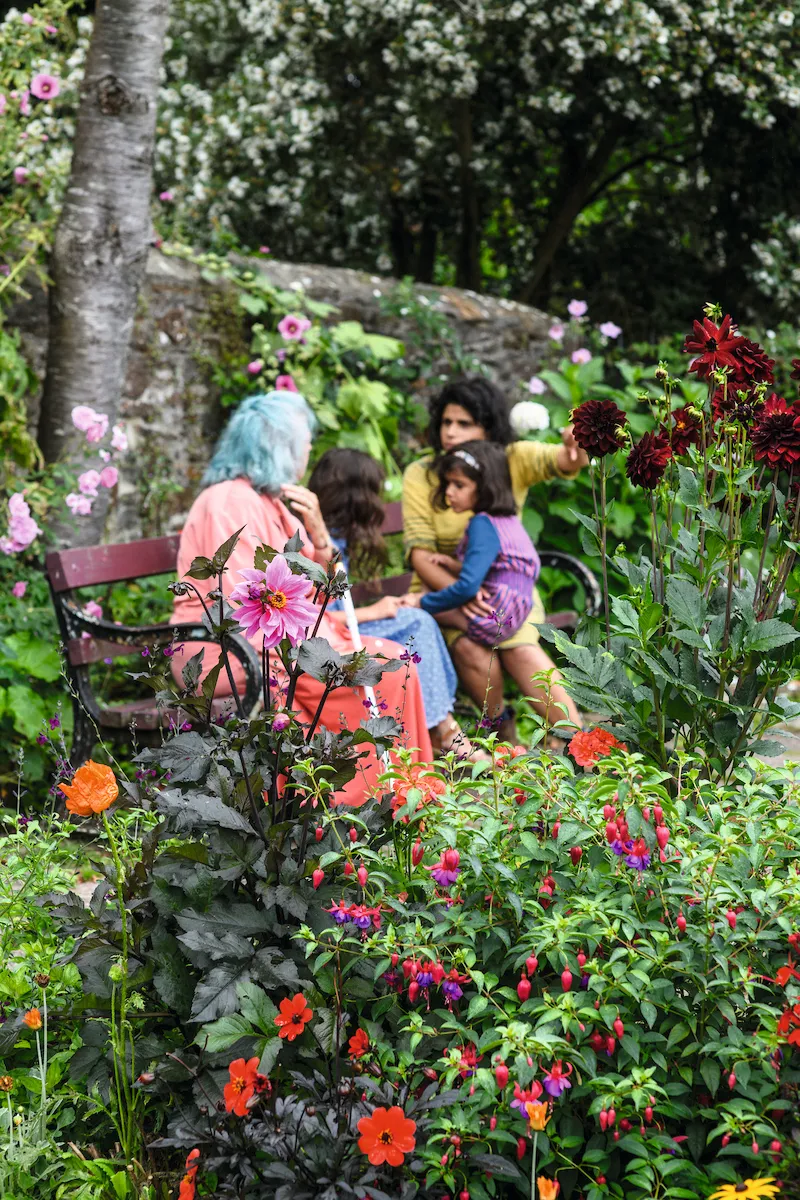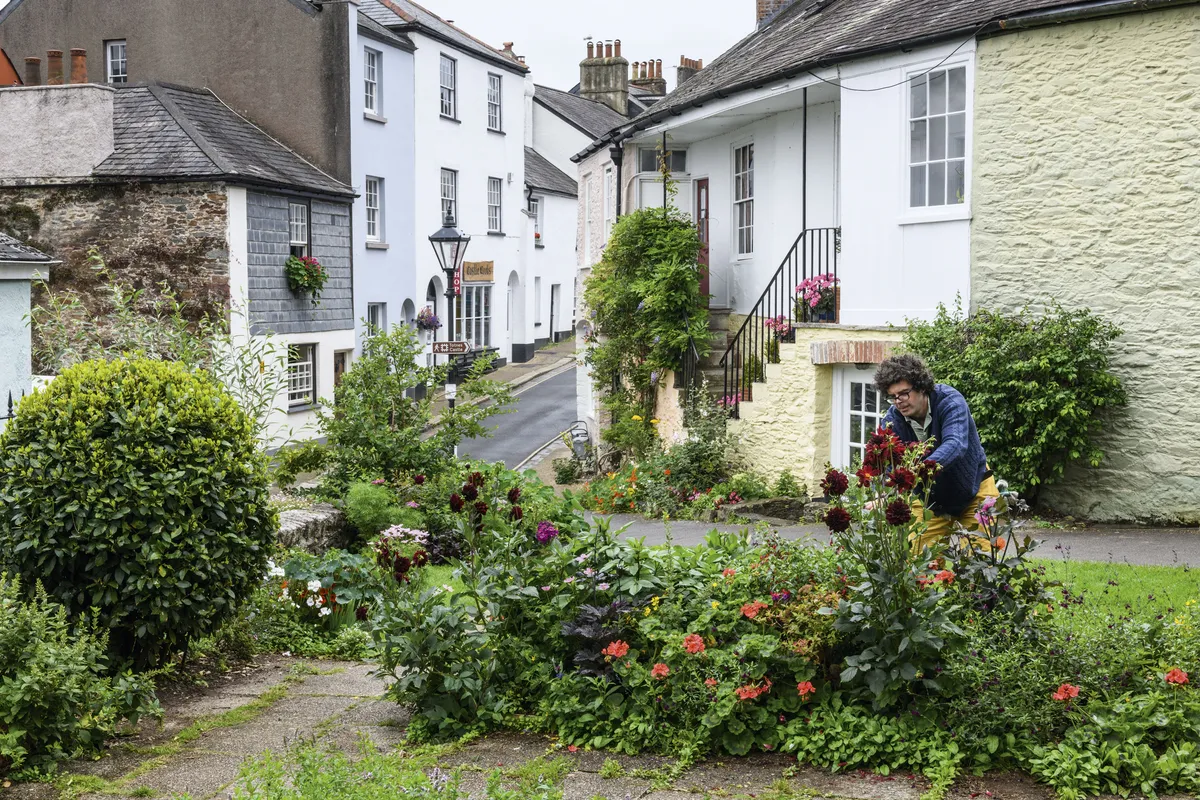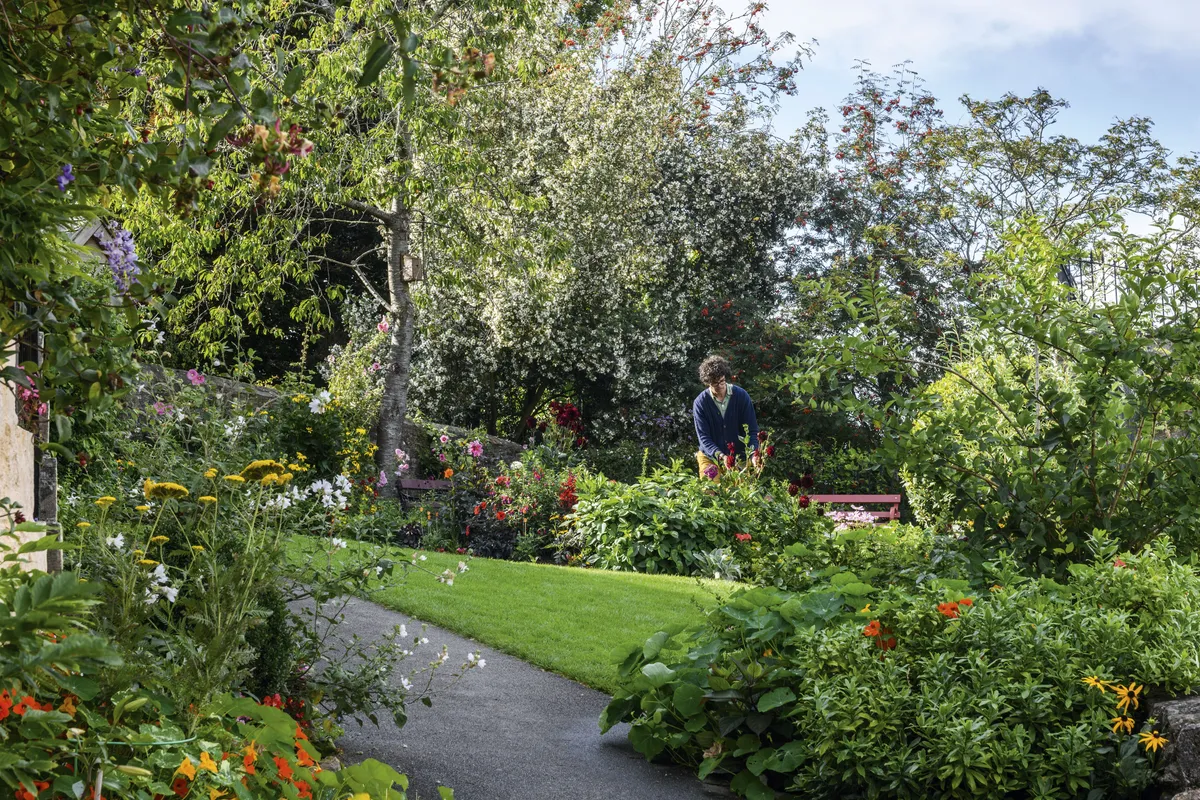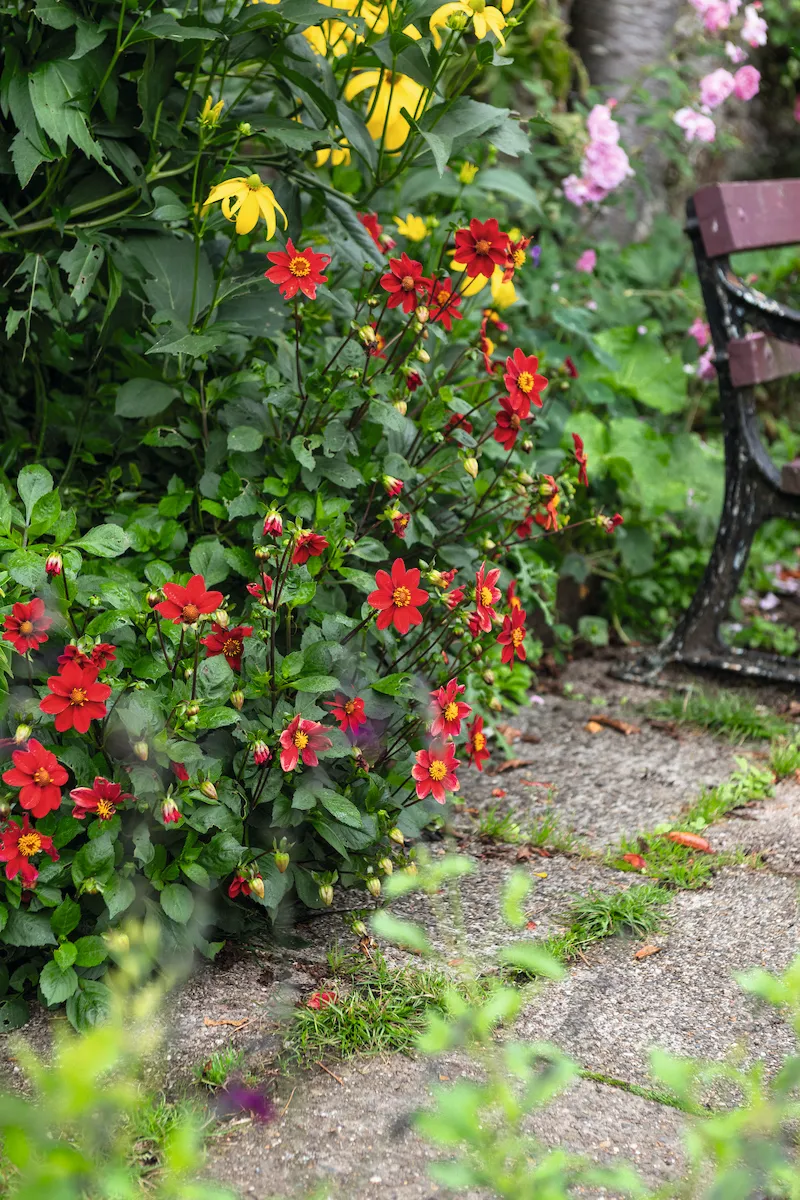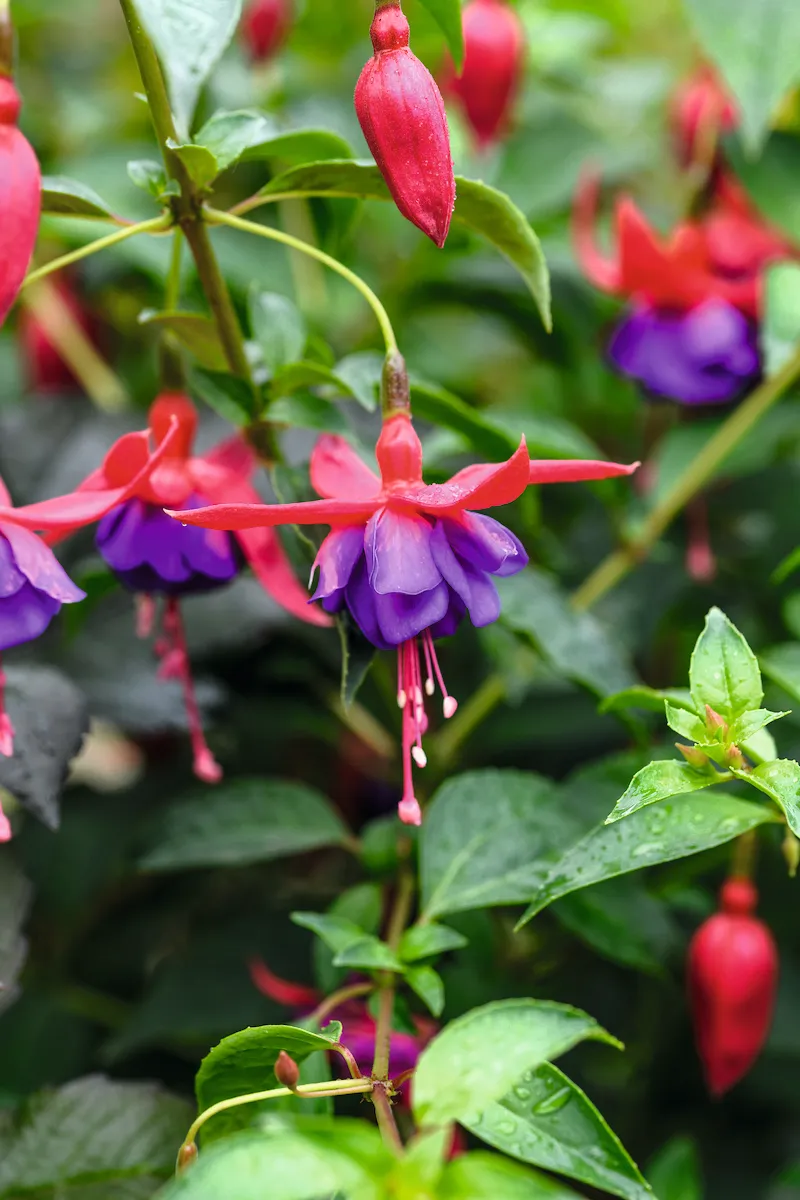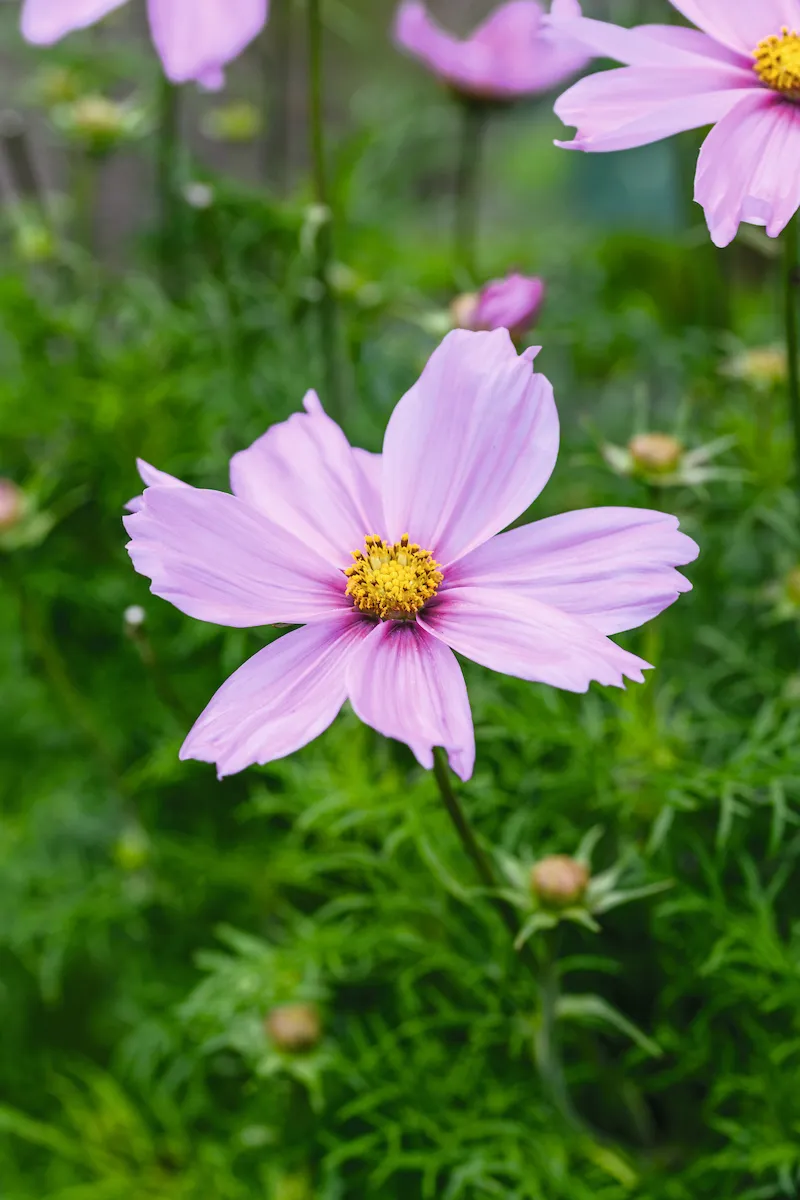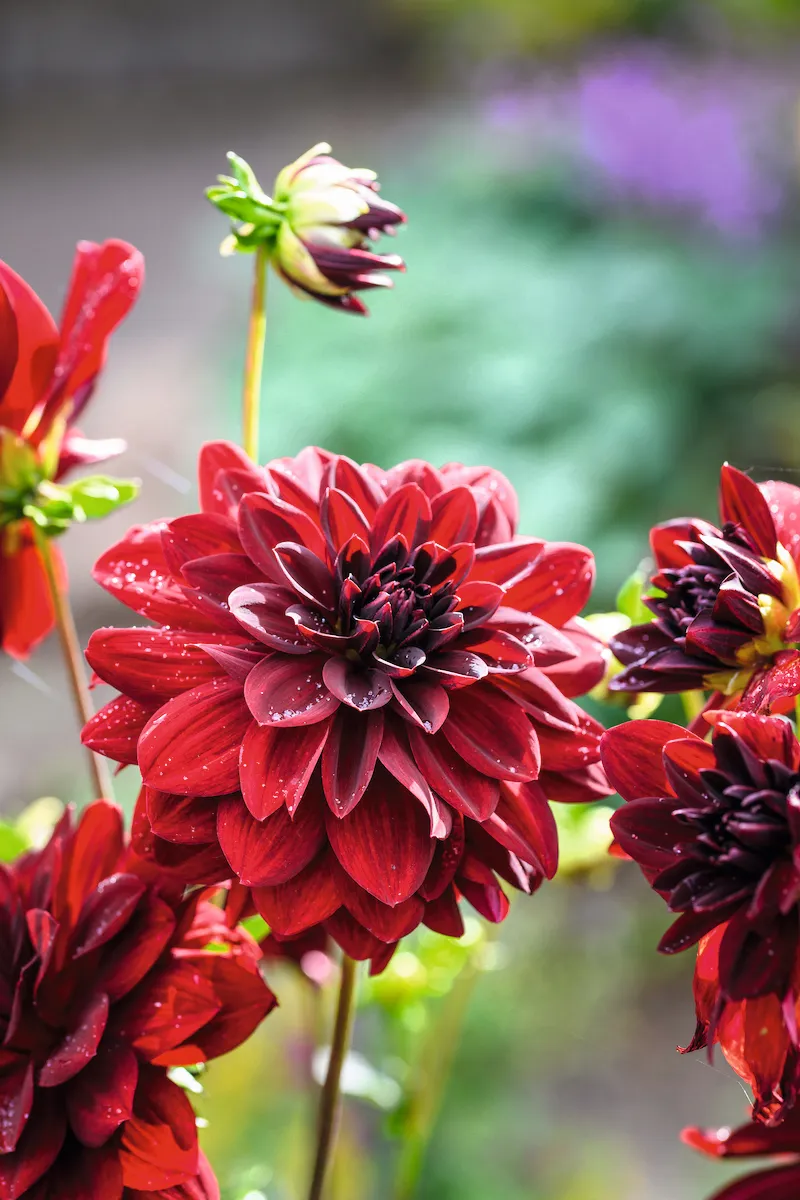A pocket park, according to Richard Reynolds, who tends one in picturesque Castle Street in Totnes, Devon, is a park that “doesn’t have room for a bandstand, but you might just squeeze in a string quartet”. In his opinion it must also have room for a couple of benches and perhaps some play equipment, as well as having a sense of enclosure. “You see greened-up, former parking spaces called ‘pocket parks’ but imagine sitting in one. I think that’s a nonsense.” His park, as tiny as it is, really feels like a park.
IN BRIEF
What A guerrilla-gardened ‘pocket park’. Where Totnes, South Devon. Size 18m x 9m. Soil Acidic and extremely free-draining with significant rubble. Climate Warm temperate, with high rainfall and some frosts. North-facing park with some sun in the mornings. Hardiness zone USDA 9.
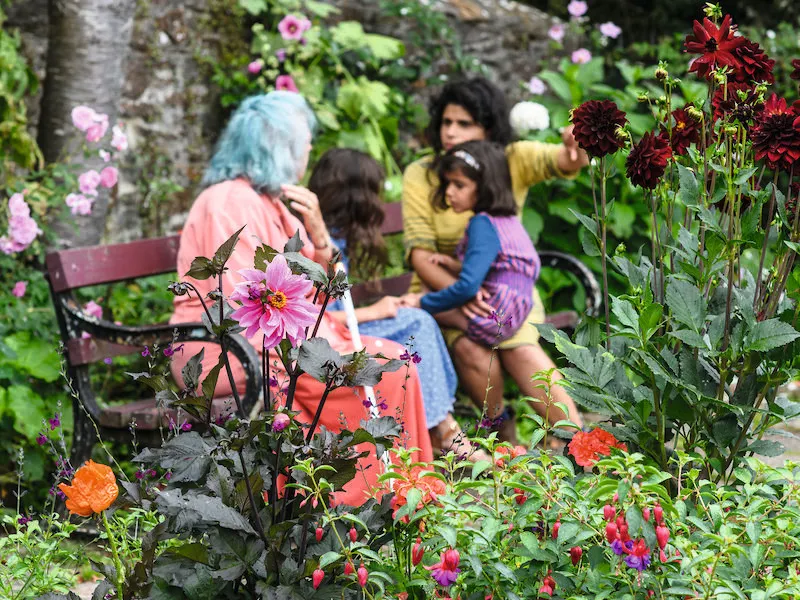
Moving from Elephant and Castle in central London with their two daughters, Richard and his wife Lyla made the decision to actively look for a public space to take on and green up. Richard had been at the forefront of the guerrilla gardening movement in London and had created Elliott’s Row pocket park in Southwark, but it was clear to him that such spaces are just as necessary in a small market town as they are in a big city. “It is wrong to assume that everyone beyond central London has a garden. Here we have a two- and-a-bit bedroom house with no garden and barely any pavement space, and at least ten of our neighbours are in a similar situation.”
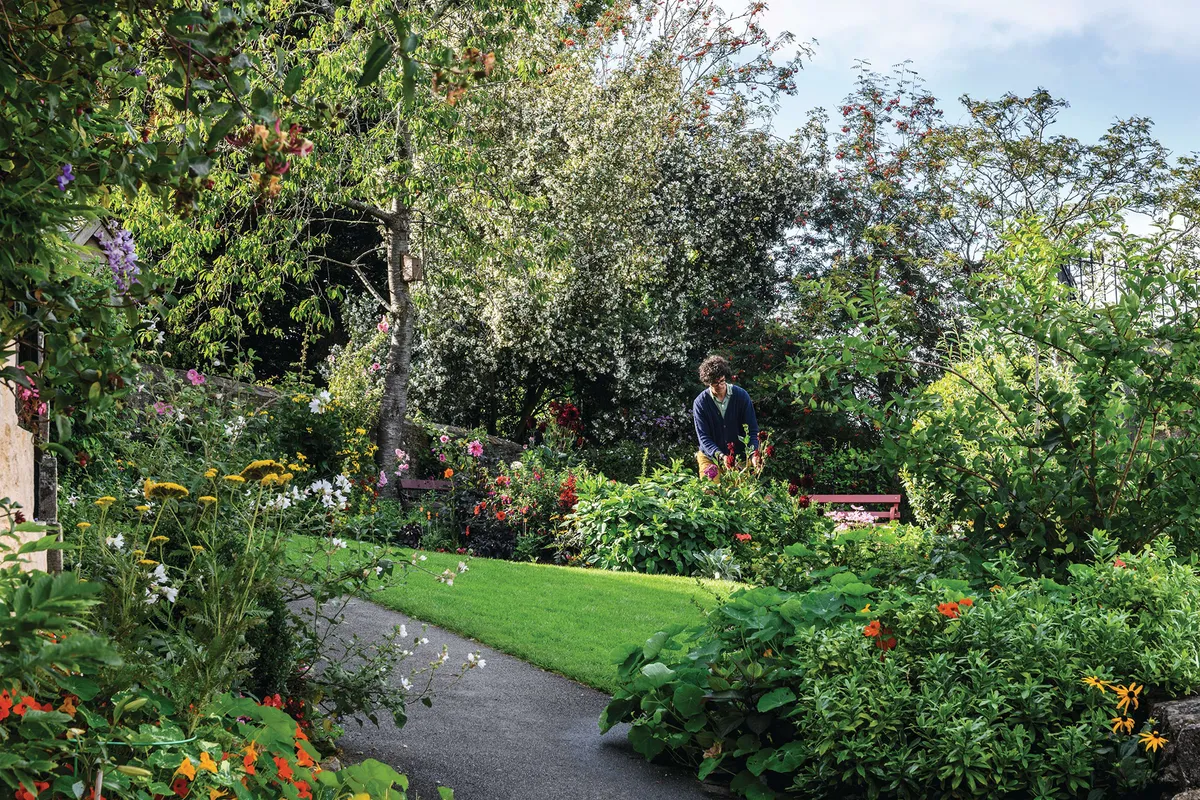
They arrived hoping to adopt a garden, and Castle Street pocket park turned out to be perfect opportunity. It is a very decent 18m x 9m and runs along the stone wall boundary to Totnes Castle grounds, bounded on its other sides by railings and with lots of growth, a lawn and borders, and a couple of benches. The street was once featured on postcards of Totnes, and the little park had been built in the 1970s by a local business, and until recently been tended to by another resident. As luck would have it the former gardener was moving out just as Richard and his family moved in. “It was the perfect guerrilla gardening opportunity, a space that had been vacated by someone else. We waited for a summer to see if anyone else was tending it and then moved in on it.” The street had become a little run-down and he was inspired by the idea of turning it into a place that might appear on a postcard once again. “I liked the idea of beautifying this street, and putting it back on the map.” With borders now colourfully packed with carefully tended flowering perennials, he has certainly done that.
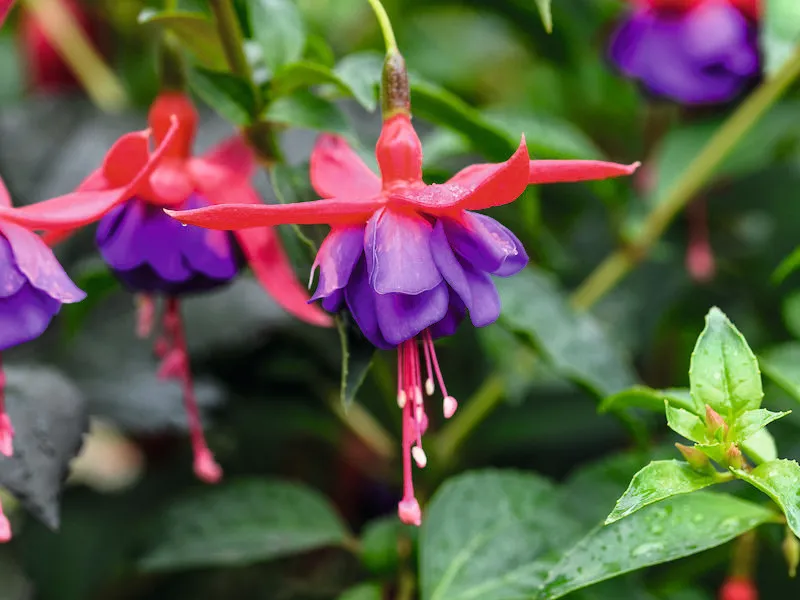
As they are what is known among locals as ‘DFLs’ or ‘Down From Londons’, Richard and Lyla have benefited in particular from their involvement in the project, in the sense that it has given them a role in the community. Many people stop and chat – “You find that interested people are generally interesting themselves,” says Richard – and local residents have been supportive, some donating plants and containers, and many making use of the space. But this is not a community gardening project. Richard has done all of the work himself, which gives him the creative control that he obviously relishes. He has planted the borders in a style inspired by Great Dixter, with hot and bright oranges, reds and chrome yellows to brighten the north-facing spot: dahlias, rudbeckias, salvias and cosmos dominate in late summer, as well as a few late flowers of the many roses he has planted. He spends several hours a week working on the park and manages it with great care, even “unfashionably”, he says, mowing the lawn twice a week in summer and weeding and top dressing it to make a beautiful sward for local children to play on.
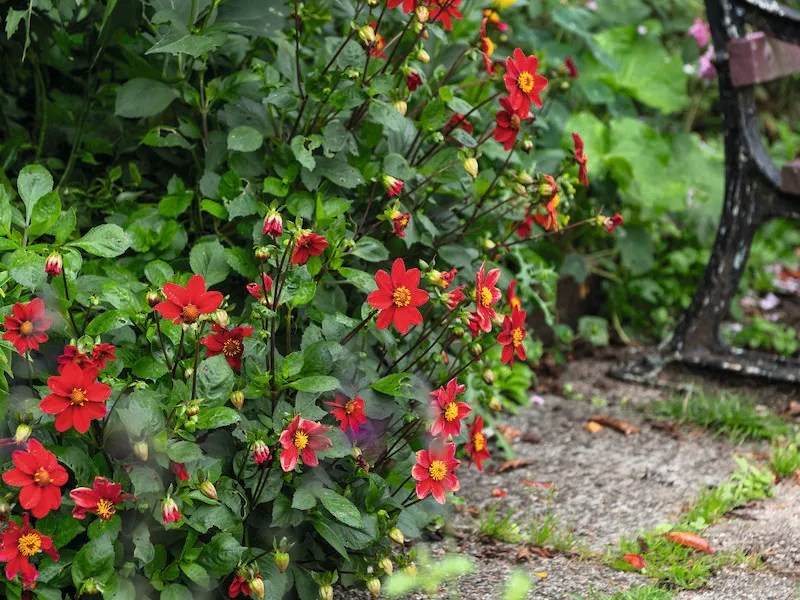
“I could ask for help, but it is so tiny and I love doing it so much that it is not a burden,” he says. “I don’t ever want council workers of other guerrilla gardeners thinking the park looks a bit neglected and so moving in on it, which is always a danger with public spaces. That’s why I work so hard to keep it looking good."
USEFUL INFORMATION
The park is part of the #LoveCastleSt project revitalising the street through beautification, nature and community connections. Follow updates on Twitter @Richard_001
